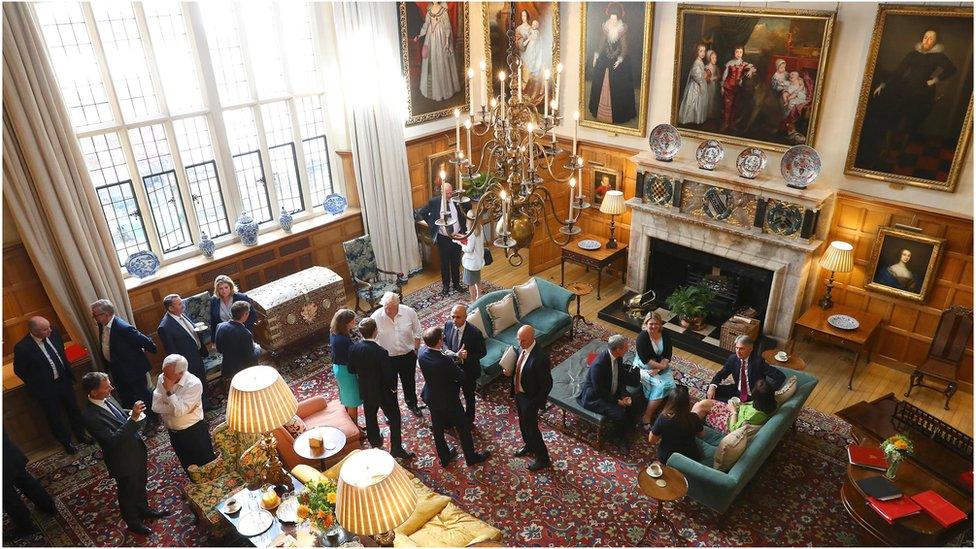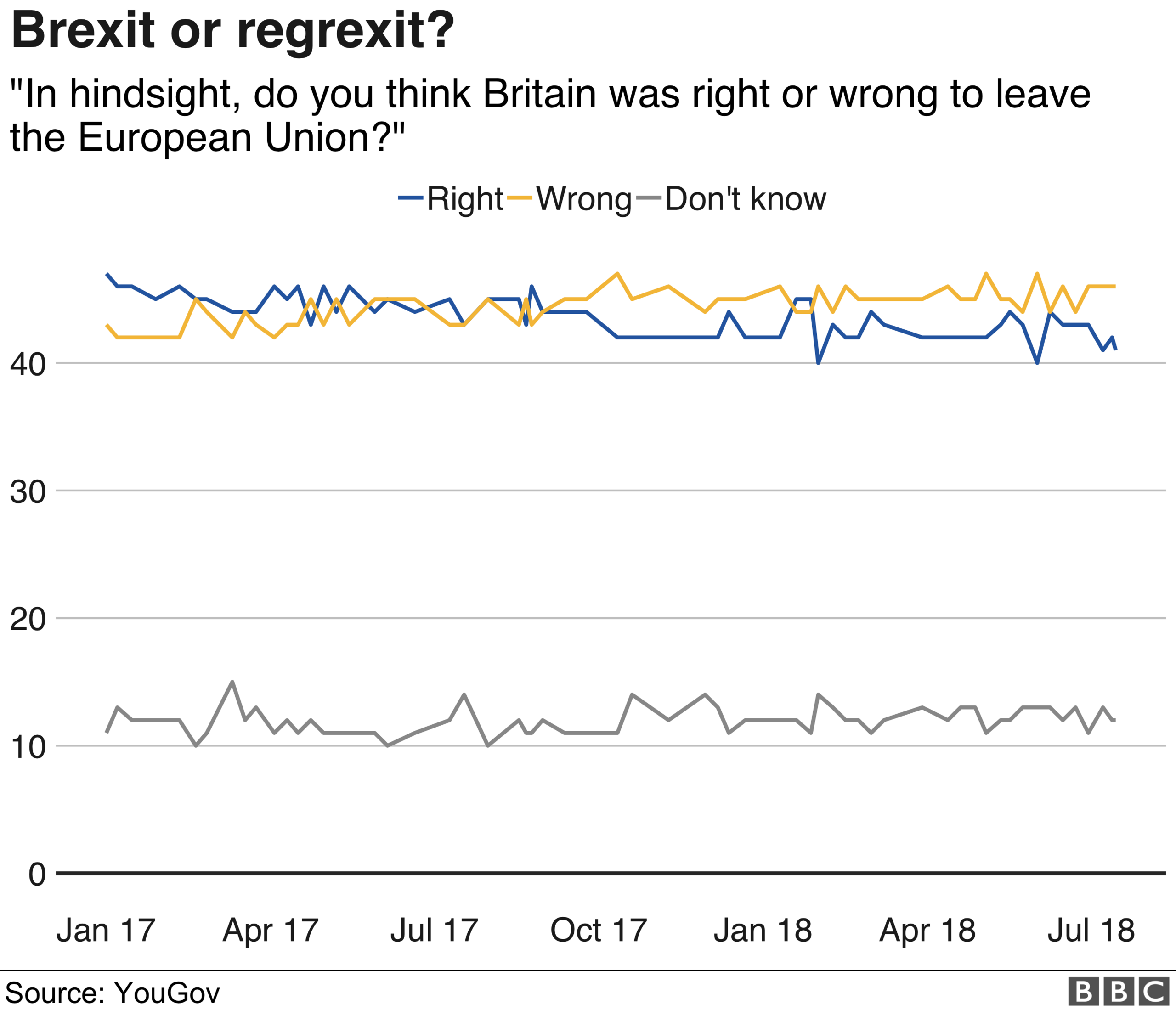Pollwatch: The Chequers Brexit effect
- Published
MPs are leaving Westminster for the summer recess. What's happened in the opinion polls and what can they tell us about what could happen when Parliament returns in the autumn?
In the first six months of 2018 the Westminster voting intention opinion polls were rather dull. But since the cabinet awayday at Chequers on 6 July, and the publication of the government's Brexit white paper the following week, there has been a marked change.
For months the polls only moved very gradually. Between January and the beginning of July support for Labour dipped a couple of percentage points whilst the Conservatives and Liberal Democrats went up by about one per cent each.
That did mean the Tories were fairly reliably in the lead, but only narrowly.
Then came Chequers - and the calm of the first half of the year came to an abrupt end.
The Conservatives have seen their rating fall back. In a couple of polls they've been at 36%, their lowest level since last year's general election.
As a result, Labour has moved ahead in a sequence of polls for the first time since February.

The cabinet met at Chequers on 6 July 2018 to discuss the government's Brexit proposals
The other beneficiaries of the Conservative drop are UKIP. Until Chequers they'd not topped 5% this year. They've been above that in each of the last five published polls.
None of this should be exaggerated. The movements aren't massive. But after months where changes happened at a snail's pace, it's a striking development.
It could yet turn out that this is just a blip. The absence of warring Conservative MPs from Westminster might see the public's view of the party improve. But if it is a blip, it's a pretty big one.
And it potentially foreshadows further turbulence in the autumn when Theresa May and the EU hope to finalise a Brexit deal.
To see how difficult the prime minister's task is on Brexit just look at polls about it.

Voters remain pretty evenly split about whether it was a good decision.
We've seen a continuation of the trend from 2017. Over time, the number of people who say that Brexit was the wrong decision has very gradually increased, but there's no sign of a consensus forming.
Worse still for the prime minister, polls which seek to capture what people think should happen next suggest an even more divided public.
An interesting poll, external by new polling firm Deltapoll asked precisely that question:
According to this poll, there's no course of action which has the support of even a third of voters.
That could cause problems for Theresa May. It's going to be very hard for her to please a majority of the public whatever she does.